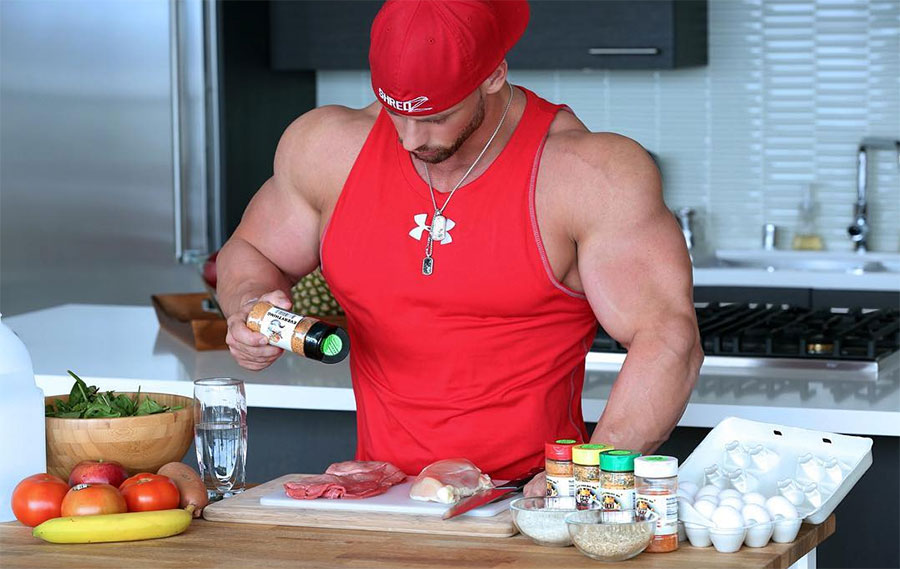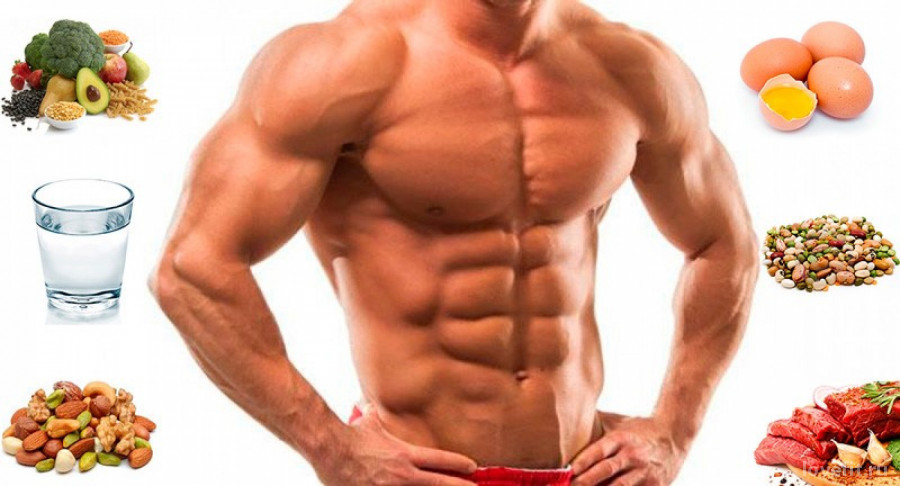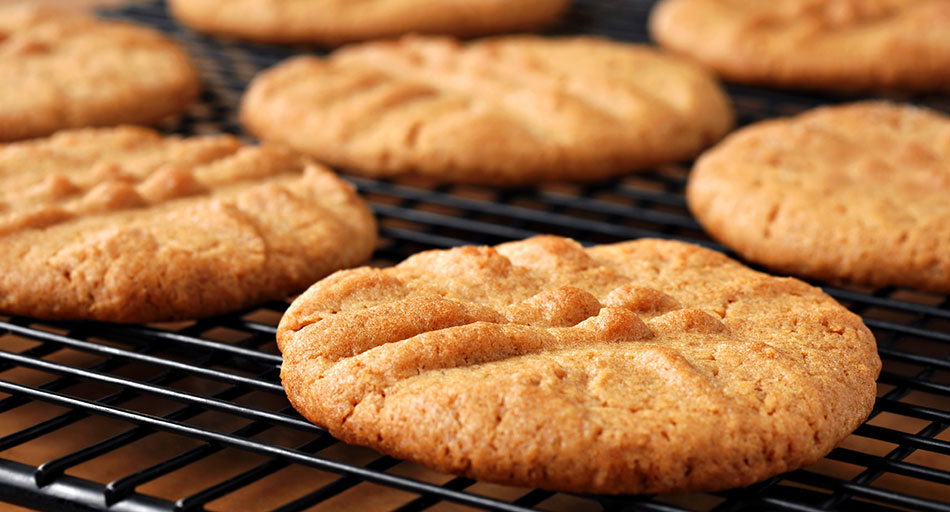Building muscle mass is not as difficult as it seems at first glance. The most important thing in this business is a systematic approach. You can’t train regularly, however, you don’t stick to the diet needed to gain weight. Or on the contrary, eat well, count calories, but don’t pay attention to quality training. The result, of course, will be, but in this case, it will take much longer to build a relaxed body than if you are dieting and exercising.
What to eat before training
You should eat solid food 2-3 hours before your workout – try making a complex carbohydrate and animal protein base. For example, rice with chicken or turkey fillets is suitable. Consuming extra whey protein and a few amino acid capsules before your workout will protect your muscles from splitting.
What to eat after training
After an intense workout, your body needs fuel within 24 hours, so don’t rely on just one meal and stick to a meal schedule. Immediately afterwards, you can drink a protein shake or turn to your nearest analogue – eggs and cottage cheese.
What foods are best for building muscle?
It is difficult to get a beautiful shapely body just from strength training. Consuming the right nutrients promotes muscle building because their nutritional value dramatically speeds up the growth process. That is why we have made a list of 10 products that an athlete needs at all. Only the main products have been selected, in fact there are many more.

What to eat after training
Whole eggs
Why is the whole egg so valuable? This product is called the “gold standard” because it contains an ideal proportion of useful substances. Relatively cheap food is actually used by the body for all kinds of growth. And they are good for muscle recovery after exercise. Many people distinguish their yolk from protein, but it has long been known that the biological value of eggs when consumed together is best.
100 g of eggs contain about 12 g of protein, 10 g of fat and less than 1 g of carbohydrates. Calorie content – 157 kcal.
Cottage cheese
Cottage cheese is a real treasure for athletes. The dairy product contains animal protein and contains the amino acids needed to build muscle mass. Casein in cottage cheese can saturate the body with energy for a long time. The composition of the product is also known for calcium, phosphorus and iron.
The composition of 100 g of cottage cheese contains 16-18 g of protein, about 9 g of fat and about 2 g of carbohydrates. Calorie content – 159 kcal.
Chicken breast
Chicken breasts are loved by athletes because of their impressive amount of protein and low fat content. It contains B vitamins that help the body to function fully during exercise. Chicken protein hydrolyzate has not been shown to have a greater effect on muscle growth than protein from the same beef. Many athletes consider the breast to be the best pump product.
From 100g chicken breast we can get 23-29g protein, about 1.8g fat and 0.5g carbohydrates. Calorie content – 137 kcal.

Chicken breast
Fish
This product helps to increase protein intake and reduce the calorie content of foods. If you want to create a nutritious diet with a low calorie content, fish is the perfect choice. It also contains healthy fatty acids. For example, omega-3 fatty acids are known to accelerate muscle growth. In addition, a variety of fish contain selenium and iodine, which protect the cells from damage.
100 g of trout contains 18.5 g of protein, 4.5 g of fat and 0.38 g of carbohydrates. Calorie content – 121 kcal.
Beef
Beef is rich in protein, iron and creatine. We’ve heard about the properties of protein and iron, now we’ll talk about creatine. Creatine helps to normalize metabolism and restore the body’s acidity. This ingredient contributes to the effective building of muscle mass while generally increasing muscle strength. Creatine is rightly called an important source of muscle energy.
100 g of lean beef contains 22 g of protein, 7 g of fat and 0 g of carbohydrates. Calorie content – 158 kcal.
Milk
Casein is an important component in milk. Due to its slow digestive properties, casein ensures the transfer of amino acids to muscle tissue. Milk contains calcium, which is good not only for bones but also for muscles. In addition, this product is rich in B vitamins, such as riboflavin, provides energy metabolism in the body, and food-based carbohydrates and fats provide energy.
100 g of milk contains 3.2 g of protein, 4.8 g of carbohydrates and 3.6 g of fat. Calorie content – 64 kcal.
Nuts
We’ve been talking about the benefits of nuts since we were kids, but few know exactly what this product is good for. Many nuts contain significant amounts of protein. Walnuts are one of the best sources of herbal omega-3 fatty acids. The product’s properties also include fiber and vitamin E, which expand the channels of blood and nutrient supply to the cells. Consumption of nuts makes the walls of blood vessels in our body more flexible.
take almonds 100 g almonds contain more than 18 g of protein, 53 g of fat and about 13 g of carbohydrates. Calorie content – 597 kcal.

Nuts
Dara
Oatmeal is the most popular cereal for athletes. Oatmeal not only helps build muscle mass, but also promotes weight gain and weight loss. Oatmeal stabilizes blood sugar levels and lowers cholesterol. In addition to fiber, this product also contains protein compounds needed to build muscle fiber and healthy fats. Oatmeal has gathered almost all the useful properties – it contains magnesium, iron, phosphorus, iodine, calcium, potassium and other necessary ingredients. Porridge is rich in antioxidants, omega-3 fatty acids and folic acid.
100 g of cooked oatmeal contains about 12 g of protein, 65 g of carbohydrates and 5-6 g of fat. Calorie content – 350 kcal.
Buckwheat
Buckwheat is a complex carbohydrate. The body absorbs this product for a long time, which prolongs the feeling of satiety. Buckwheat contains no fats and simple carbohydrates, but it does contain fiber, which is good for the gastrointestinal tract. This grain is high in protein and amino acids – these are important ingredients for building muscle tissue. 100 g buckwheat 4 g protein, approx. It contains 20 g of carbohydrates and 2 g of fat. Calorie content – 110 kcal.
Athletes are advised to consume buckwheat porridge with animal protein products. When cereals are combined with eggs, fish and other dairy products, proteins are absorbed much better.
White radish
The most unexpected product in our selection was beets. It has been proven that you can experience an energy boost if you eat a little beet an hour before your workout. During exercise, your oxygen consumption will decrease, which will increase your performance over the next few hours. How it works? The mitochondria of muscle cells begin to work more intensively and produce more energy.
100 g of cooked beets contains 1.92 g of protein, 10 g of carbohydrates and 0.11 g of fat. Calorie content – 49 kcal.
Advice from experienced athletes
Athletes not only recommend choosing a healthy diet and counting calories, but also keep a diet and exercise diary. This will help you control your weight and create a diet that is appropriate for your conditions, body type and health. You can create an ideal diet for yourself in the future. However, in the initial stage, consult an experienced coach.
If you change your waistline as a result of a dietary change, exercise more than usual and reduce your daily food intake by 10%. Only a systematic approach to sports and diet will help you stay in good shape.